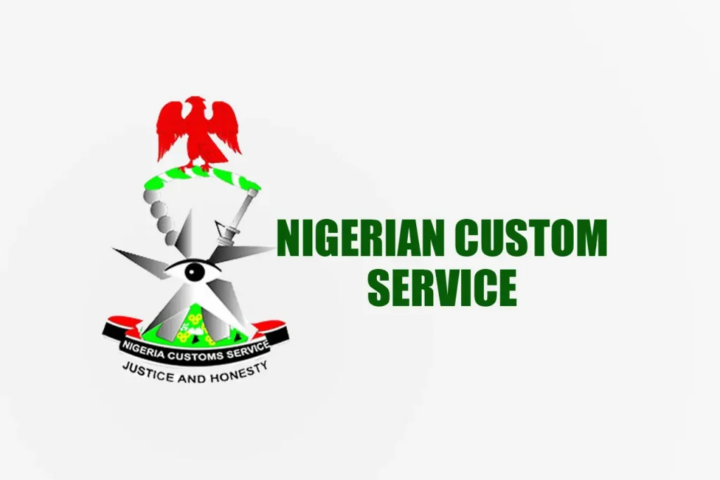The Nigeria Customs Service (NCS) has set an ambitious goal to cut cargo clearance time at Tin-Can Island Port in Lagos to just two hours, a target that promises to revolutionize the speed and efficiency of customs operations.
This initiative, which is part of the full implementation of the B’Odogwu system, is seen as a key step in modernizing Nigeria’s trade facilitation processes. The system, a locally developed digital platform, aims to streamline customs operations, reduce bottlenecks, and improve overall port efficiency.

The B’Odogwu system is designed to ensure that customs processes are not only faster but also more transparent. The platform is touted as “network glitch-free,” offering a seamless experience for importers, clearing agents, and customs officers. This marks a shift from the often cumbersome manual processes that have historically plagued Nigerian ports. Under the new system, when goods are accurately declared, the clearance process can be completed quickly, with minimal physical inspection required.
Transparency is a central feature of the B’Odogwu system. The system works under the premise that accurate and honest declarations by importers and clearing agents are essential for the smooth flow of goods. For example, if an importer declares that their shipment contains mobile phones, the physical inspection should ideally confirm this. Any discrepancies, such as finding items other than what was declared, would lead to delays, additional inspections, and potentially penalties. By encouraging honest declarations, the B’Odogwu system aims to reduce the instances of smuggling, undervaluation, and other illegal practices that can disrupt trade and lead to revenue loss for the country.
One of the primary goals of this initiative is to significantly reduce the time it takes to clear goods at the port. Currently, clearance times can take several days, depending on the type of goods and the level of inspection required. The two-hour target is a bold one, but the NCS is optimistic about its potential to transform the way goods are processed at the port. In a world where speed is crucial for global trade, reducing clearance time could make Nigeria’s ports more competitive and attractive to international trade.
To ensure that the B’Odogwu system is fully implemented and effective, the NCS has engaged in extensive training sessions with various stakeholders involved in the clearance process. These include customs officers, clearing agents, importers, and shipping companies. The aim is to familiarize these groups with the new system and address any challenges that may arise during the transition. This collaborative approach is intended to smoothen the adoption process and ensure that all parties understand the new procedures and expectations.
The early results of the B’Odogwu system have been encouraging. In April 2025, the Tin-Can Island Command generated ₦145 billion in revenue, a significant increase from ₦95.7 billion in the same month the previous year. This rise in revenue is attributed to better compliance, more accurate declarations, and the streamlined customs process. By early May 2025, the command had already collected ₦27 billion, further indicating that the system is having a positive impact on both revenue generation and trade facilitation. The increase in revenue is a direct result of improved compliance, with fewer instances of customs seizures and smoother operations at the port.
The success of the B’Odogwu system has also led to a more efficient flow of goods through the port. With customs processing becoming faster, businesses can import goods more quickly, which in turn helps to reduce the cost of doing business. Faster clearance means lower storage fees for goods, and businesses can access their products sooner, reducing the risk of stockouts and delays in production or retail. This benefits not only the businesses but also the end consumers who are able to enjoy a more stable supply of goods.
Customs authorities have acknowledged that while the B’Odogwu system is a positive step, challenges are inevitable, especially during the initial phase of full implementation. Adjustments may be needed as the system is rolled out across the board, and stakeholders will need to remain patient and adaptable. However, the NCS is committed to addressing any teething problems and ensuring that the two-hour clearance target becomes the standard for operations at Tin-Can Island Port.
The NCS has called on importers and clearing agents to make sure that they are familiar with the B’Odogwu system and the necessary procedures for accurate declarations. The faster cargo clearance process is contingent on the cooperation of all stakeholders, and those who take the time to understand the system and follow the proper channels will benefit from quicker clearance times and fewer delays.
Looking ahead, the NCS plans to continue refining the B’Odogwu system and to expand its use to other ports in the country. If successful, the two-hour cargo clearance goal could become the norm across Nigerian ports, improving the country’s trade efficiency and contributing to its economic growth. The government is also hopeful that this initiative will lead to an increase in foreign direct investment, as faster and more efficient ports could make Nigeria a more attractive hub for international trade.
The long-term vision is to see the B’Odogwu system not only shorten clearance times but also enhance the overall efficiency of Nigeria’s ports, boosting trade and revenue, and reducing the country’s reliance on manual processes. As the NCS continues to fine-tune the system and ensure its success at Tin-Can Island, there is hope that similar improvements will be seen across other areas of Nigeria’s logistics infrastructure, ultimately benefiting the broader economy.
Support InfoStride News' Credible Journalism: Only credible journalism can guarantee a fair, accountable and transparent society, including democracy and government. It involves a lot of efforts and money. We need your support. Click here to Donate
